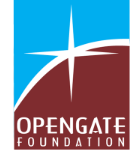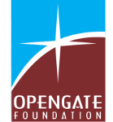Open Gate Foundation Kenya, we are committed to advocating for the protection and promotion of human rights across the country. Our Human Rights Program empowers marginalized communities, provides legal support, and raises awareness of fundamental rights and freedoms.
Human Rights Program
We collaborate with local and international partners to strengthen our interventions and promote sustainable, community-driven change.
Our Approach
We use transformational, community-based methodologies to address gender inequality, power imbalances, and harmful cultural practices. Our programming promotes inclusive, rights-based change at the grassroots level.
Key Areas of Focus
- Education & Awareness
hosting community workshops and training sessions to promote understanding of human rights and fundamental freedoms. - Advocacy & Legal Support
Providing legal aid and support to individuals and communities affected by human rights violations. - Empowerment
Building the capacity of community leaders and human rights defenders to champion justice and equality. - Collaboration
Partnering with national and international organizations to address pressing human rights challenges.
Cohesion and Transformation Program
This program promotes peace and unity through conflict transformation and peace-building initiatives. We address the root causes of conflict and build sustainable reconciliation.
Current Focus Areas
- Countering Extra-Judicial Killings
Addressing youth abductions and unlawful killings through awareness campaigns and inclusive interventions. - Women’s Role in Peace-building
Training rural women in peace-building and mediation, equipping them as grassroots agents of change.
Human Rights Landscape in Kenya
Kenya faces a range of human rights challenges, many of which disproportionately impact vulnerable populations in arid and semi-arid regions. Our work targets the following pressing issues:
- Female Genital Mutilation (FGM)
Despite legal bans, FGM persists in rural communities, posing serious health and human rights concerns. - Early and Forced Marriages
Girls are denied education and subjected to early pregnancies through forced unions. - Wife Inheritance
A cultural practice infringing on women’s rights and autonomy. - Sexual Violence
High rates of sexual abuse and harassment, especially during political unrest. - Extrajudicial Killings
Unlawful killings by security forces in informal settlements and protest contexts. - Displacement and Land Rights Violations
Forced evictions and land disputes in arid areas undermine the rights of indigenous communities. - Food Insecurity and Drought
Prolonged droughts threaten the right to food and basic dignity. - LGBTQ+ Discrimination
Widespread stigma, violence, and legal threats against LGBTQ+ individuals.
Promoting Accountability and Participation
We strive to increase transparency and accountability in governance, especially at the county level, by:
- Encouraging public participation in governance processes.
- Promoting access to public information for advocacy.
- Highlighting misuse and mismanagement of public resources.
- Advancing electoral justice through civic education and inclusivity.
Education for All Initiative
Aligned with the Constitution of Kenya (2010) and international treaties, our Education Justice Program (EJP) seeks to ensure the right to quality education for all.
Core Principles
- Availability – Ensure adequate public schools and resources.
- Accessibility – Remove social, economic, and physical barriers.
- Acceptability – Promote relevant, inclusive curricula and quality teaching.
- Adaptability – Address diverse learner needs across regions and cultures.
Focus Areas
- Early Childhood, Primary, Secondary, and Adult Education.
- Education access for marginalized groups.
- Addressing policy gaps, gender inequality, and climate-related disruptions in education.
Health Justice Program
Rooted in Article 43(1) of the Constitution, our Health Justice Program defends the right to the highest attainable standard of health.
Strategic Focus Areas
- Policy Advocacy – Push for inclusive health policies and greater public health funding.
- Healthcare Access – Expand services to underserved and remote communities.
- Targeting Vulnerable Groups – Women, children, elderly, persons with disabilities.
- Awareness & Prevention – Community education on health risks and disease prevention.
Key Health Priorities
- Maternal and Child Health
- Infectious Disease Prevention
- Mental Health and Psychosocial Support
- Community Health Education
- Sexual and Reproductive Health and Rights (SRHR)
We also promote civic engagement in healthcare governance, particularly through budget tracking, treaty reporting, and community-led accountability.
Environmental and Climate Justice Program
Our Environmental and Climate Justice Program responds to SDG 13, aiming to reduce the impact of climate change on vulnerable populations while promoting a rights-based approach.
Guiding Principles (PANEL)
- Participation
- Accountability
- Non-Discrimination & Equality
- Empowerment
- Legality
Key Areas
- Climate Governance & Financing – Advocating for inclusive climate policies and institutional reform.
- Accountability Mechanisms – Supporting civil society to monitor, report, and participate in climate justice forums.
- Access to Justice – Supporting victims of environmental injustices and advancing climate jurisprudence.

